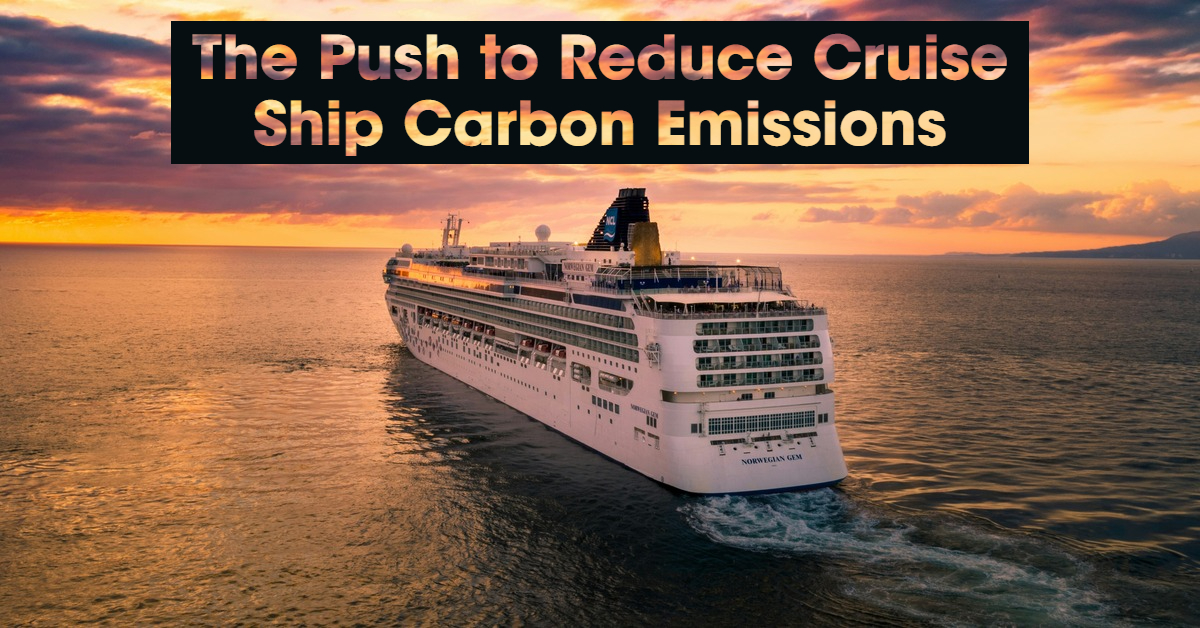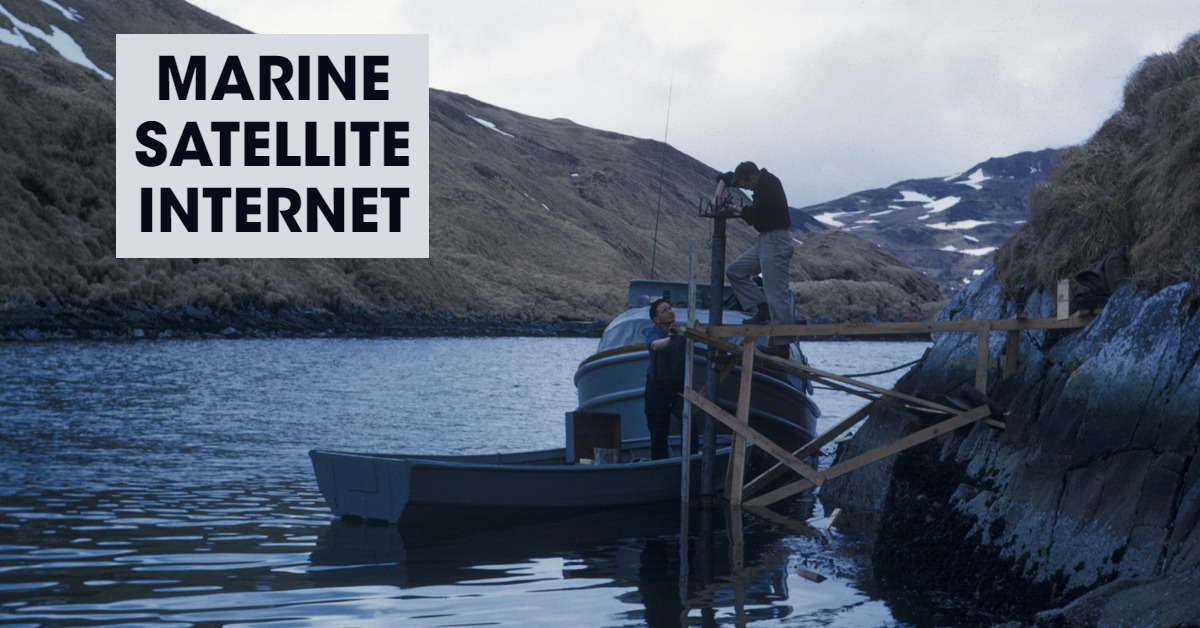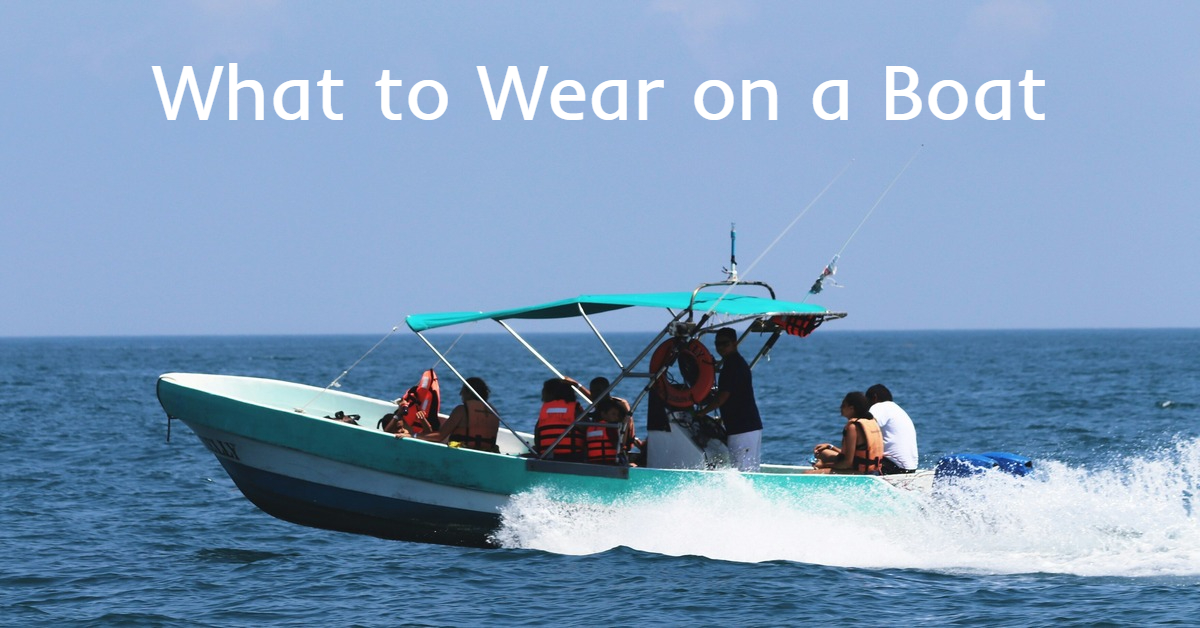Since the number of people owning sailboats and taking to the water is on the rise, so are sea-related accidents. A common accident on a boat is someone falling overboard.
We know this might seem like an accident only staged in movies, but we promise you, it happens, and you should be prepared for it.
Luckily, we have written this article to tell you all about the causes of passengers falling overboard on a boat and how you can prepare for this situation. Let’s dive right in!
What Exactly Causes Someone to Fall Overboard?
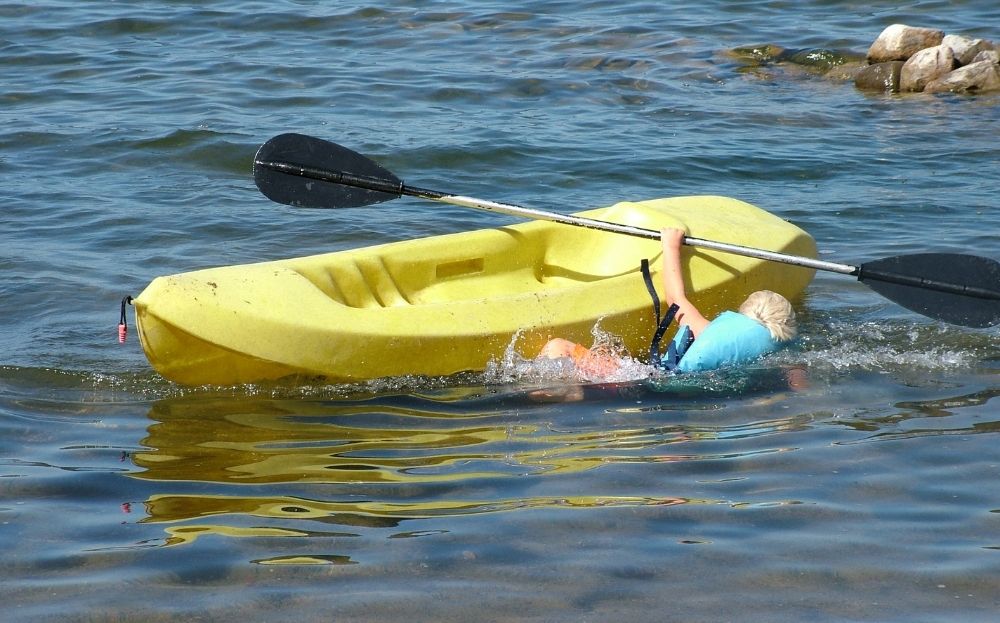
On much smaller boats such as motorboats or sailboats, the most common cause is someone simply standing up whilst the boat is in motion.
However, the chances of falling overboard only increase if the boat is swaying a lot or the person who is handling the boat did not prepare for the situation.
On much bigger boats and ships, such as a fancy cruise ships, falling overboard is usually related to being intoxicated.
To avoid falling overboard on your next big cruise holiday, you need to make sure you are being careful and using common sense.
If you are intoxicated, avoid getting too close to the edge of the boat, especially if the boat is moving over rough seas.
When a person stands on a boat, they are sacrificing balance and since waves can be unpredictable, so can the boat’s movement. If there is alcohol involved too, this can significantly impair balance.
In a nutshell, carelessness is the main cause of people falling overboard when at sea. On smaller boats and sailboats, if you need to stand up, you need to hold on, especially if the boat is moving fast.
A boat is a moving vessel, and this means it sways through all kinds of waves. If a person stands without keeping a hand on the boat, falling in the water is sometimes inevitable.
Moreover, if passengers all stand up at the same time, the boat’s center of gravity is heightened. When this happened, the boat sits a lot higher on the water, and this can make it more prone to erratic movement.
According to the United States Coast Guard’s recreational boat statistics, in 2021, 273 accidents on boats involved someone falling overboard and 63% of these accidents resulted in death.
The others all caused serious injuries, and this is why it is so important to use common sense and follow boat safety rules.
Though falling overboard might seem rare, it still happens and these accidents rank 5th of all boating accidents in the United States in 2021.
Rules
To keep everyone safe when onboard, all boats have the same rule. This is because when standing or moving around the boat, you should always have at least one hand on the boat.
If you become careless about this rule and are not cautious whilst onboard the ship, you could risk falling overboard.
A lot of boats have handholds dotted all over the place for you to grab and hold on to, as well as multiple toe rails and lifelines to keep you as safe as possible.
To keep safe onboard, you should also avoid going on to the deck when the weather is windy, or if the boat is caught in any other bad weather.
If you must go on deck, we suggest wearing a harness that is fastened to jack lines and always keeping one hand on the boat.
Decks can be unsafe, especially on smaller boats such as sailboats when the boat is in motion.
To avoid unwanted and unsafe situations, always be aware of your surroundings, stay as calm as possible and stay sober when navigating a deck.
If you do not pay attention to this advice or become intoxicated before going on deck, you could fall overboard.
Other than intoxication or carelessness, you might wonder why someone would stand on a moving vessel. The third most common reason is fishing.
It’s very common for anglers to stand when they are fishing. It means they can move their rod and fight fish a lot easier than if they were sitting.
However, this might cause some unexpected overboard passenger problems. This is why anglers should also take note of this and wear a certified personal floatation device when fishing.
You might also see professionals wearing automatic inflatable life jackets.
Risks of Falling Overboard
When traveling by boat, falling overboard is far from a pleasant experience and can be extremely dangerous. The chances of being rescued are limited depending on the situation, and there are several serious risks involved. These include:
The Cold Water
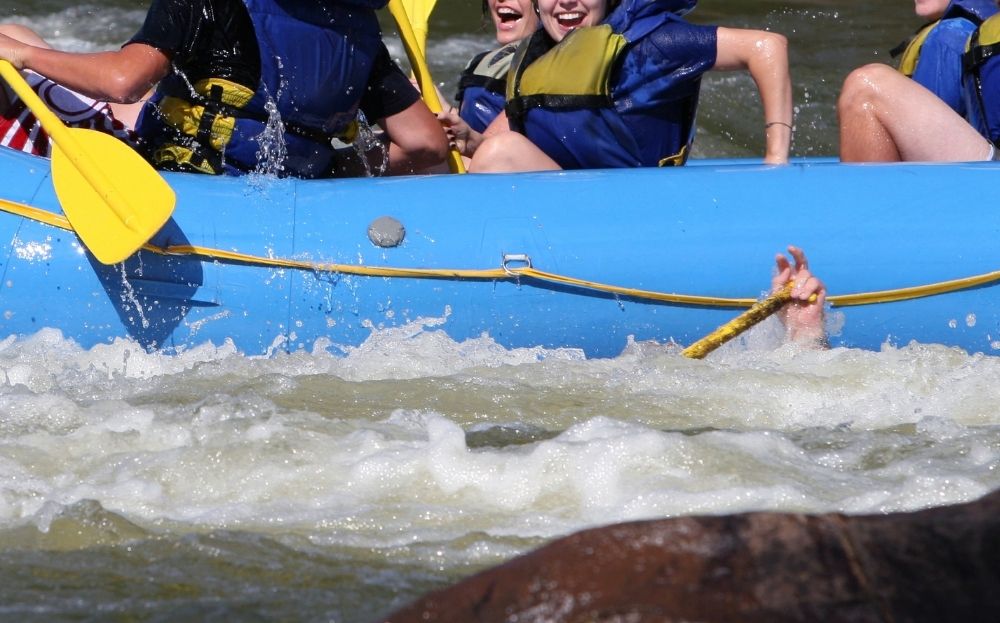
When a person’s body is submerged in cold water unexpectedly, they automatically let out all the air in their body, and try and wheeze and absorb as much air as possible to replace this.
This can lead to swallowing dangerous amounts of water.
The shock of the cold is also a very common cause of death from falling overboard into the freezing sea. In extremely cold waters, you will be unable to move your limbs fast and you might not be able to swim as well.
It will even be hard to just keep your head raised above the water, and this can significantly increase the possibility of your drowning.
The Plunge
This is much more dangerous when it comes to larger boats. Large boats and shops have a deck a lot higher than the surface of the water.
This means the height of the fall will be at least a dozen meters and falling from this height could put you in danger of serious physical harm.
This will also depend on how the person falls and the position they are in when they land. If you fall in the water from any height in a bad position, the person could suffer from broken bones or any other painful injury.
Falling on water from an acceptable height is not so different from falling on the ground.
This is why you find divers dive in as low as possible and in a pencil-like fashion to break the surface of the water, without being injured.
The Current
If you are thrown into strong sea currents, this could be fatal. If you are on a giant ship, instead of the person being dragged into the propellers or underneath the ship, they will be tossed by the rough water and around the vessel of the ship. This makes it hard to track the person that has fallen overboard.
Hypothermia
Whether a person survives after falling overboard will depend a lot on the water’s temperature.
Falling into water that isn’t too cold should be ok for a moment, yet falling into something as cold as the Arctic ocean could cause brain function and death in just minutes due to the onset of hypothermia.
Hypothermia is when the body drops heat a lot faster than it can absorb and this triggers a low body temperature.
The symptoms include intense shivering, a slow pulse, rigid joints, garbled speech, loss of dexterity, loss of bladder control, mental confusion, and a bloated face.
Sharks

This is probably the lowest risk of falling overboard but is still worth mentioning. Sharks tend to only live in warm waters but they should not be feared too much as they do not typically attack unless they have been harassed.
However, sharks are good at detecting a target and if they sense traces of blood in the surrounding area, they will attack.
What Should You Do If You Fall Overboard?
When a person falls overboard, they need to stay as calm as possible. Though this might seem impossible, you would need to try and stay positive, hopeful and most of all relaxed.
This will help you survive and make it easier to float. Always remember to float rather than swim and remembering all of this can make the difference between life and death.
When you float, you can regain control of your senses and breathe again, and floating restricts your movement, which allows you to conserve your energy.
To save as much energy as you can, the passenger should try to lie down flat on their back and keep their head just above the water.
They should bend their back and spread their arms to the side, letting their legs hang up in a stretched position.
You can also perform what is known as the dead man’s float. To do this, you need to take the biggest breath possible before placing your face in the water.
You then need to relax your body and let it hang loose. When you need to take in more air, simply lift your head and breathe in, then move your limbs slightly to keep you afloat. Inhale and exhale deeply, and then do it all again.
Someone who falls overboard and gets rescued has usually stayed calm and relaxed and has been able to follow rescuers’ instructions to increase their chances of survival.
There was once a man named Brett Archibald who fell overboard into the Indian Ocean because of how calm and hopeful he stayed, staying afloat for around 29 hours.
He even got through dehydration, the abundance of sea creatures such as sharks and gulls, delirium, as well as rough storms.
Rescuing an Overboard Passenger
Falling overboard is not always a death sentence and overboard passengers can survive if someone realizes they have fallen quickly enough.
When another passenger sees an overboard passenger, they should raise a ‘Man overboard!’ signal and keep their eyes glued to the passenger that has fallen, monitoring them in the water.
If you are the passenger monitoring the overboard passenger, you need to keep track of their position overboard at all times.
This can prove tricky since the water’s surface is rarely calm. In this case, the man overboard might disappear in the intense waves and the irregular water surface.
Situations like this can get worse if the passenger falls overboard during the night as this means the water is pitch black.
If the person that has fallen was wearing something shiny or that glowed in the dark, this would be one of the only ways you could still keep track of them.
When the person overboard has been properly located, other passengers on the boat can toss over a life ring or something that floats and this means they will have something to hold on to until they can be rescued.
A tossed ring or floating item can also help people onboard keep track of the victim’s position in the water.
After the ‘man overboard alert has been validated, the boat can turn itself back to rescue the passenger through the ‘man overboard rescue turn’. This is a marine operation usually applied quickly after validation.
Big ships such as aircraft carriers are not able to perform a U-turn and pull out the fallen passenger. Instead of turning around, a smaller staffed boat, which is known as the MOB boat is used to save the victim.
When the victim is pulled into a much smaller boat, the rescuer needs to be careful to not put excessive amounts of weight on one side of the boat.
This can result in capsizing and will turn into an even bigger rescue mission. If you are rescuing someone who has fallen off a sailboat, it’s best to bring the person to the stern of the sailboat.
A lot of pontoon boats will have a ladder on the side. The passenger can then climb up this.
Ways to Avoid Falling Overboard
To remain planted on deck and avoid falling overboard, there are a few safety tips you should take note of. These include:
- Avoid pictures too close to the edge- We know how badly you want to recreate that scene from the Titanic, with Jack and Rose standing on the edge of the ship. But this could easily end in disaster with one wrong foot. Keep the pictures a couple of meters away from the edge, especially if you are trying different poses.
- Wear non-slip shoes on deck- When walking around the boat, you should stick to non-slip shoes. Even when you are dressed up for dinner, if you’re hitting the deck we suggest you ditch the heels and stick to boat shoes suited for wet and dry floors.
- Stay inside the boat during bad weather- When the ship gets caught in rough weather, you should stay inside your cabin and avoid the outside and top deck. This deck will no doubt be very slippery and the harsh wind might blow you near, or over the edge.
- Keep the arguments inside- We all do stupid things when we argue. This is why you should stay in a safer place such as inside your cabin. The last place you want to be when you are swimming with emotion is near the edge of the boat, or you might end up swimming in the sea instead.
- Avoid the edge of the boat whilst intoxicated- When you have had slightly one too many, avoid going to the edge of the boat. If you feel dizzy or faint, always lie down until you feel better and have sobered up before hitting the deck again.
Final Thoughts
We hope by reading this article you have identified the main ways people fall overboard, whether that’s on a big cruise ship or a sailboat.
Both can be as dangerous as each other and falling overboard can be deadly in any situation. Always remain sensible when you are on deck and avoid the edge of the boat if you are intoxicated or not feeling well.
Follow the ‘one hand on the boat’ rule at all times and if you do happen to still fall in, stay as calm as you can. Follow the rescuer’s instructions and hold on to that float.
Now, keep this in mind and hit the seas! Happy sailing from us!
- Sustainable and Luxurious: Discovering Split’s Yachting Paradise – April 26, 2024
- MarineTraffic vs VesselFinder: Which Is Better Vessel Tracking Service? – February 14, 2024
- Port Costs: A Comprehensive Guide to Port Dues and Fees for Cargo Ships – February 12, 2024


